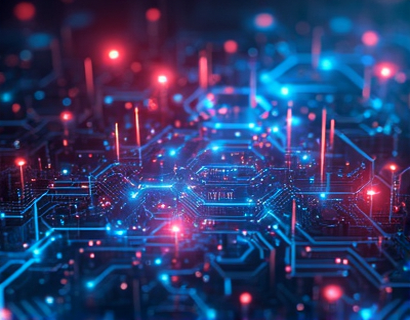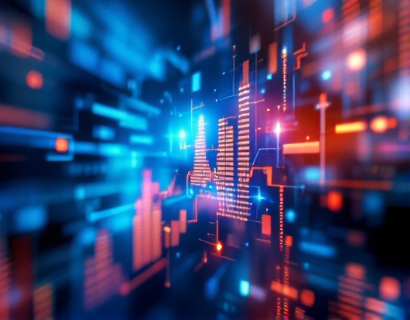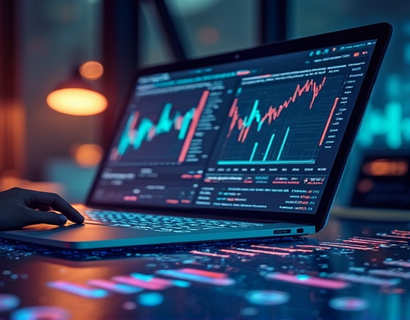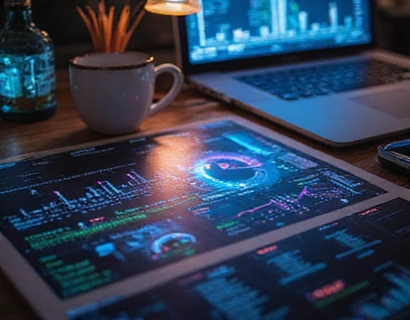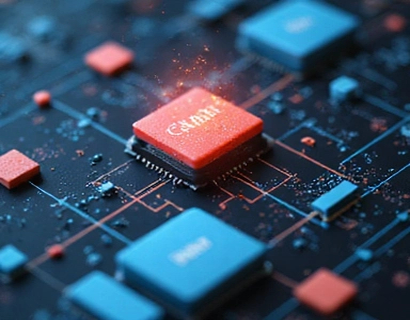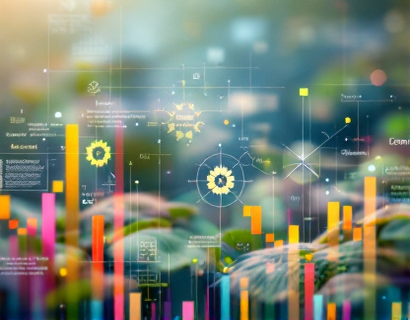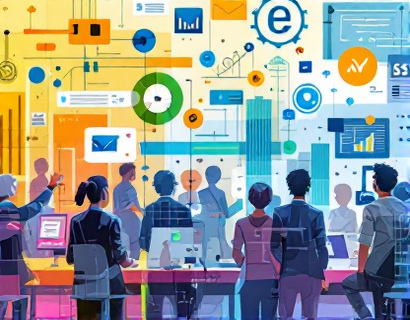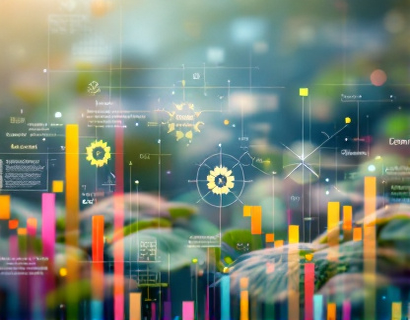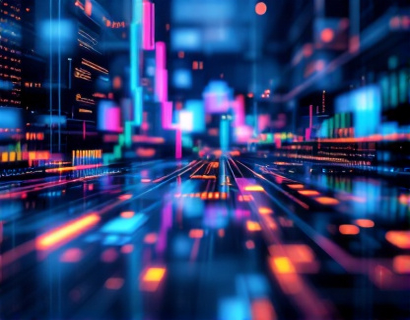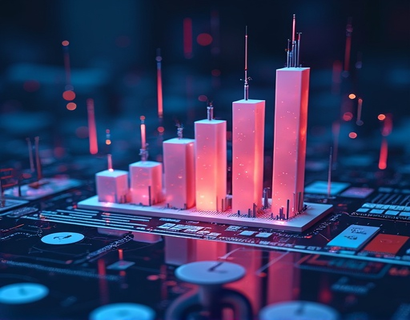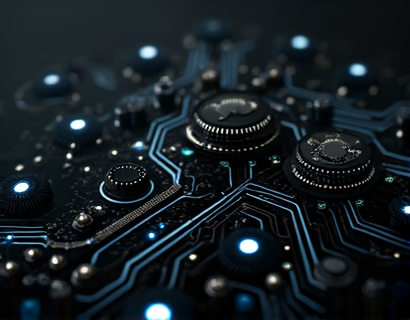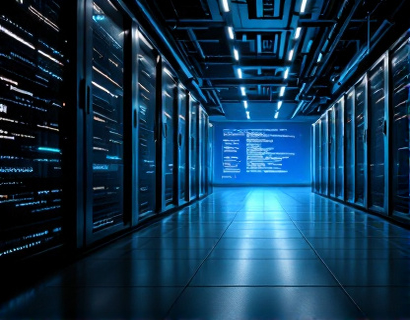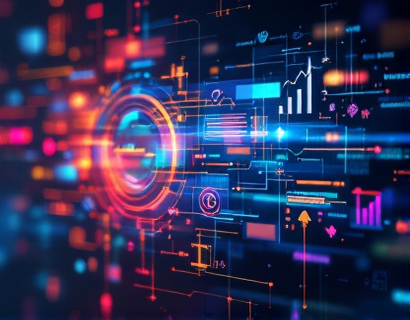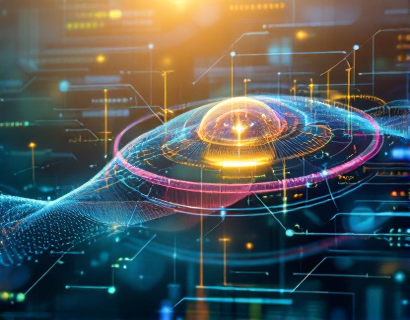Empowering Next-Gen Digital Transformation with Advanced Tech Solutions: The Synergy of Crypto and AI
The intersection of cryptocurrency and artificial intelligence represents a pivotal frontier in the evolution of digital technology. This convergence is not merely a technological curiosity but a transformative force reshaping how we interact with digital systems and services. As we delve into this topic, it's essential to understand the foundational elements that make this synergy possible and the profound impact it has on various industries.
The concept of cryptocurrency, since its inception with Bitcoin in 2009, has revolutionized the way we think about money and transactions. Beyond being a decentralized digital currency, cryptocurrencies leverage blockchain technology, a distributed ledger that ensures transparency, security, and immutability. This technology has far-reaching implications beyond finance, influencing sectors such as supply chain management, healthcare, and governance.
Artificial intelligence, on the other hand, is rapidly advancing, driven by improvements in machine learning, natural language processing, and data analytics. AI's ability to process vast amounts of data, identify patterns, and make predictions is invaluable in optimizing operations, enhancing user experiences, and driving innovation. When combined with the robustness of blockchain, AI can achieve new heights of efficiency and security.
Blockchain and AI: A Powerful Combination
The integration of blockchain and AI creates a synergy that amplifies the strengths of both technologies. Blockchain provides a secure and transparent environment for AI algorithms to operate, ensuring data integrity and reducing the risk of manipulation. Conversely, AI can enhance blockchain's capabilities by optimizing smart contracts, improving consensus mechanisms, and enhancing security protocols.
One of the most significant applications of this combination is in the realm of decentralized finance (DeFi). DeFi platforms use smart contracts, powered by AI, to automate and secure financial transactions without intermediaries. This not only reduces costs but also increases accessibility and inclusivity in financial services. AI-driven analytics can predict market trends, manage risks, and personalize financial products, making DeFi more sophisticated and user-friendly.
Enhancing Security with AI and Blockchain
Security is a paramount concern in the digital age, and the combination of AI and blockchain offers robust solutions. AI can detect anomalies and potential threats in real-time, enhancing the security of blockchain networks. Machine learning algorithms can analyze patterns and identify suspicious activities, such as fraudulent transactions or DDoS attacks, before they cause significant damage.
Moreover, AI can improve the scalability and efficiency of blockchain networks. By optimizing consensus algorithms and managing resource allocation, AI ensures that blockchain systems can handle increased loads without compromising performance. This is particularly crucial for applications requiring high transaction throughput, such as supply chain tracking and identity verification.
AI-Driven Innovations in Blockchain
AI is not just a tool for enhancing blockchain but is also driving innovation within the blockchain ecosystem. For instance, AI can facilitate the development of more efficient and adaptive smart contracts. These contracts can learn from past transactions and adjust their parameters to optimize outcomes, reducing the need for manual intervention and increasing reliability.
Another exciting area is the use of AI in blockchain-based identity management. AI algorithms can verify and authenticate identities with high accuracy, reducing the risk of identity theft and ensuring compliance with regulatory standards. This is particularly beneficial in sectors like healthcare and government, where secure and verifiable identity management is critical.
Use Cases Across Industries
The potential applications of AI and blockchain extend far beyond finance. In the healthcare sector, AI-driven analytics can process medical data stored on blockchain platforms to identify patterns and predict patient outcomes. This can lead to more personalized and effective treatments, improving patient care and reducing costs.
In the supply chain industry, blockchain ensures transparency and traceability, while AI optimizes logistics and inventory management. AI algorithms can predict demand, optimize routes, and detect potential bottlenecks, ensuring a smoother and more efficient supply chain. This not only reduces costs but also minimizes environmental impact.
The real estate market is another area where AI and blockchain can make a significant impact. Blockchain can provide a secure and transparent record of property transactions, while AI can analyze market data to predict trends and optimize pricing. This combination can streamline the buying and selling process, reduce fraud, and increase market efficiency.
Challenges and Considerations
Despite the immense potential, the integration of AI and blockchain is not without challenges. One of the primary concerns is the regulatory landscape. As these technologies evolve, regulatory bodies are still grappling with how to govern them effectively. Ensuring compliance while fostering innovation requires a balanced approach and continuous dialogue between stakeholders.
Another challenge is the technical complexity involved in integrating AI and blockchain. Developing systems that seamlessly combine these technologies requires expertise in both domains. Additionally, the computational resources required for AI-driven blockchain applications can be substantial, necessitating efficient and sustainable solutions.
Privacy is also a critical consideration. While blockchain offers transparency, it can sometimes conflict with the need for data privacy. AI can help address this by implementing advanced encryption and anonymization techniques, ensuring that sensitive information remains protected.
Future Prospects
Looking ahead, the synergy between AI and blockchain is poised to drive significant advancements in digital transformation. As these technologies mature, we can expect to see more sophisticated applications across various industries. The development of interoperable blockchain networks, powered by AI, will facilitate seamless integration and collaboration between different systems.
The rise of Web 3.0, a decentralized internet powered by blockchain and AI, represents the next frontier in digital innovation. In this ecosystem, users will have greater control over their data and online identities, leading to more secure and personalized digital experiences. AI will play a crucial role in managing and optimizing these decentralized networks, ensuring they are efficient, scalable, and user-friendly.
Furthermore, the convergence of AI and blockchain can accelerate the adoption of renewable energy and sustainable practices. Smart grids powered by blockchain can optimize energy distribution, while AI can predict and manage energy consumption patterns. This not only enhances efficiency but also supports global efforts to combat climate change.
Conclusion
The merging of cryptocurrency and artificial intelligence is not just a technological trend but a transformative force reshaping the digital landscape. By leveraging the strengths of both technologies, we can create more secure, efficient, and innovative solutions that enhance various aspects of our lives. As we continue to explore this exciting intersection, it's clear that the future of digital transformation is bright, powered by the synergy of AI and blockchain.





